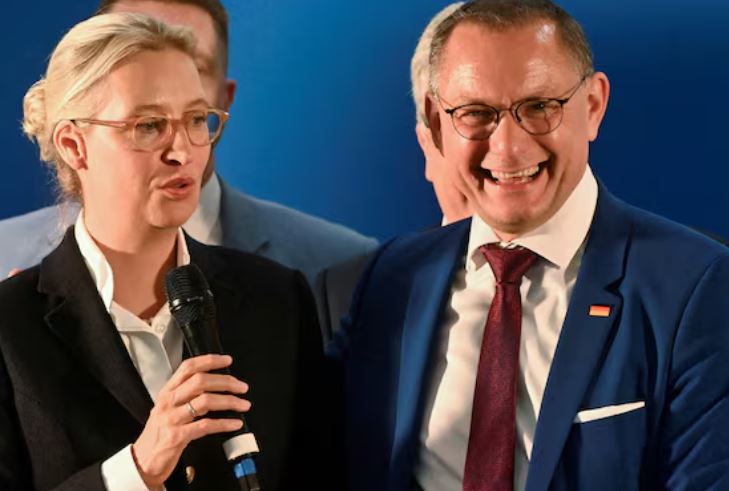In a power play that has sent shockwaves through Brussels, Germany’s ostracized Alternative für Deutschland (AfD) party has rallied fellow far-right factions to form a new, formidable alliance within the European Parliament.
The Alternative für Deutschland (AfD), a party long shunned by mainstream European politics for its incendiary rhetoric and controversial stances, has defiantly emerged as the architect of a burgeoning far-right coalition within the European Parliament. Dubbed the “Europe of Sovereign Nations,” this new bloc joins the ranks of the already established “Patriots for Europe” and Viktor Orban’s Fidesz party, further fragmenting the political landscape.
A Coalition of Contention
Comprising a diverse array of nationalist and populist parties from across the continent, the Sovereign Nations group boasts a total of 28 legislators, a formidable force despite being dwarfed by the 84-strong Patriots. This alliance, however, is not without its internal fissures, reflecting the deep-seated mistrust and ideological divergences that often plague far-right movements.
Laszlo Torozckai, a Hungarian member of the group, underscored these divisions in a social media post announcing the alliance’s formation. He pointedly highlighted the rejection of Romania’s S.O.S. party, a move that underscores the group’s stringent criteria for membership.
A Tempestuous Relationship
The AfD’s relationship with its European counterparts has been fraught with tension. Despite sharing common ground on issues like immigration and Euroskepticism with Marine Le Pen’s National Rally, the AfD was unceremoniously ejected from the Identity and Democracy group prior to the June elections due to controversial remarks made by one of its members regarding Germany’s Nazi past.
This expulsion, however, did not deter the AfD. Instead, it galvanized the party to forge its own path, culminating in the creation of the Sovereign Nations group.
A Force to Be Reckoned With
With 14 MEPs, the AfD commands a dominant position within the new alliance, dwarfing its smaller partners, each of whom contributes no more than three legislators. This imbalance raises questions about the group’s internal dynamics and the extent to which the AfD’s agenda will shape its collective platform.
Maximilian Krah, the AfD figurehead whose controversial comments triggered the party’s expulsion from Identity and Democracy, has opted to remain outside the new group. Nevertheless, he acknowledged its significance, stating that it represents a crucial step towards a much-needed transformation of the European Union.
As this ascendant force takes its place on the European stage, its impact remains to be seen. Will it herald a new era of far-right influence, or will it succumb to the same internal divisions that have plagued similar movements in the past? Only time will tell.
Soumya Smruti Sahoo is a seasoned journalist with extensive experience in both international and Indian news writing. With a sharp analytical mind and a dedication to uncovering the truth, Soumya has built a reputation for delivering in-depth, well-researched articles that provide readers with a clear understanding of complex global and domestic issues. Her work reflects a deep commitment to journalistic integrity, making her a trusted source for accurate and insightful news coverage.



